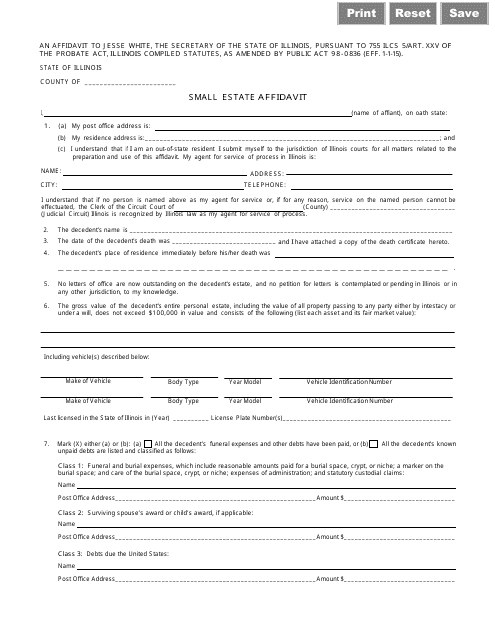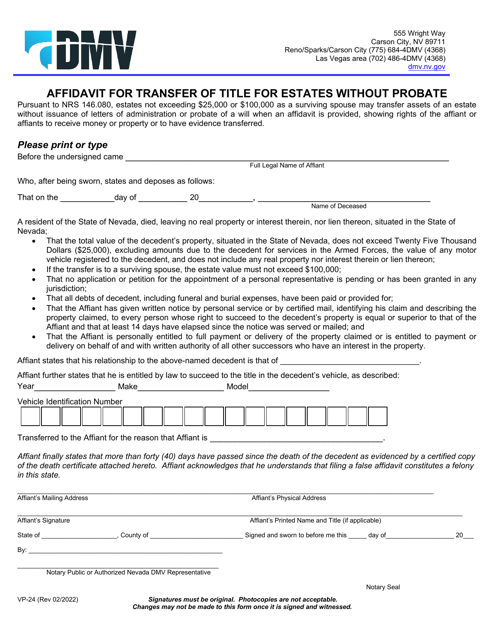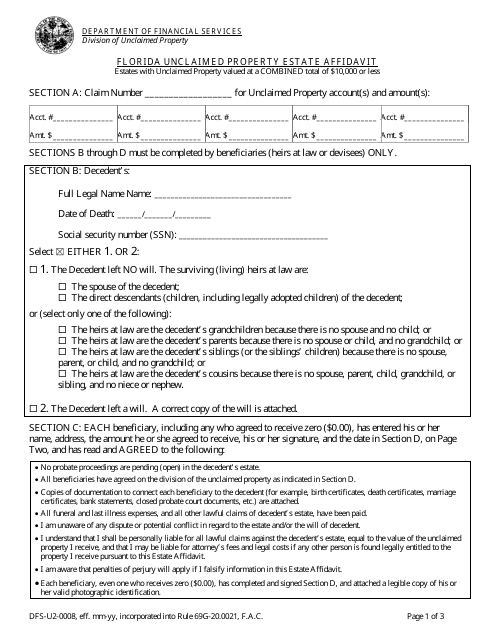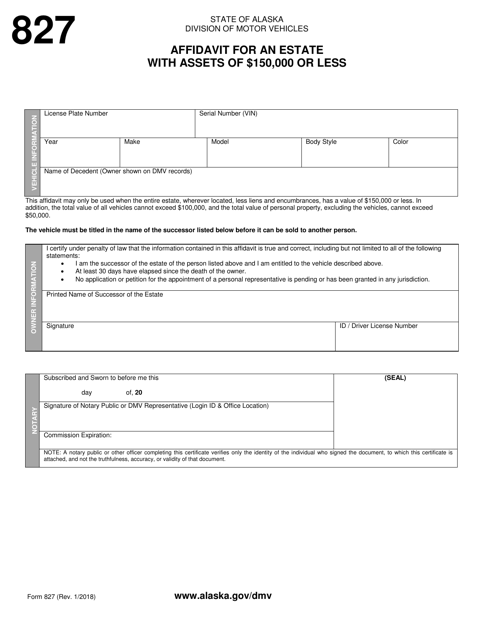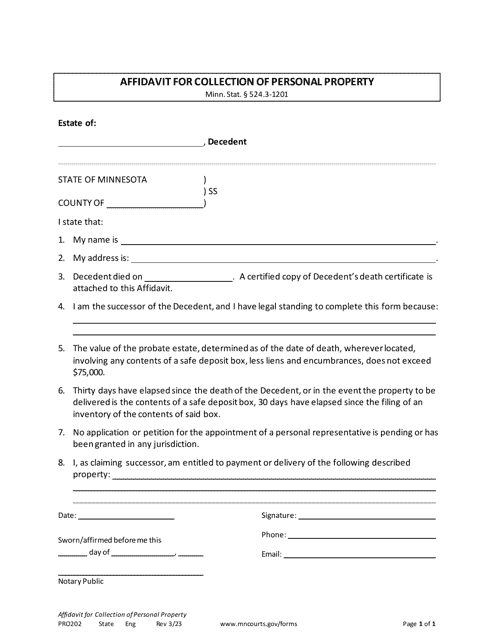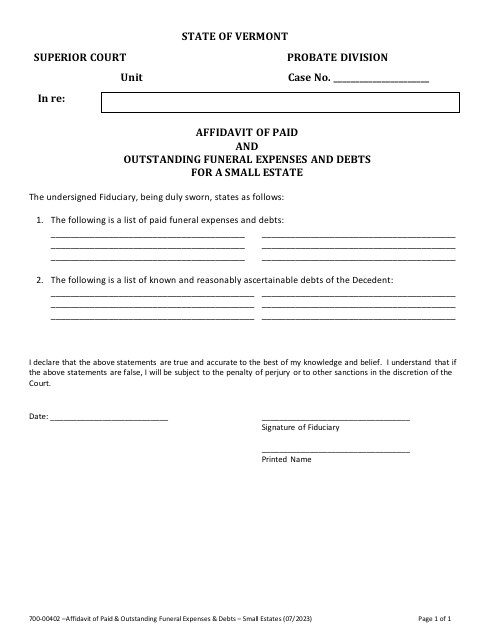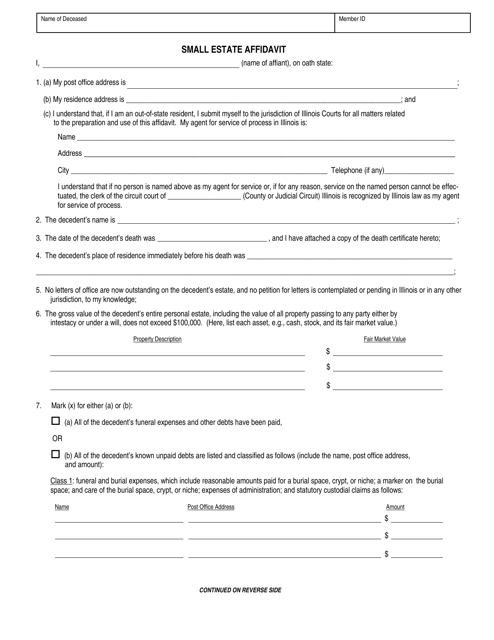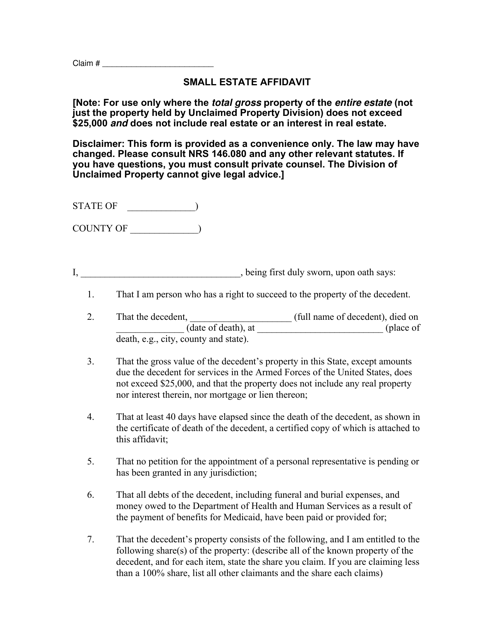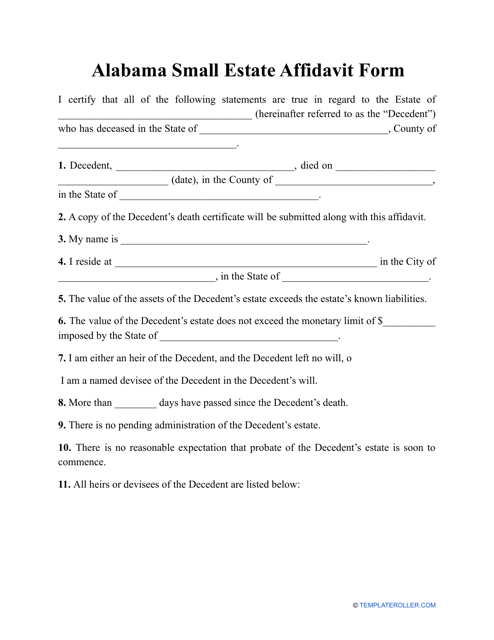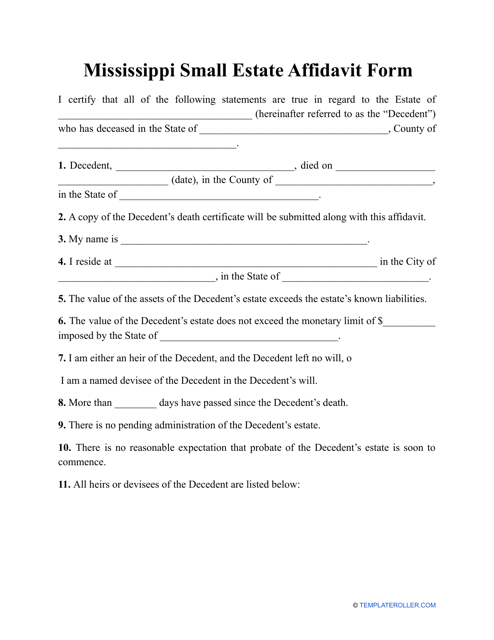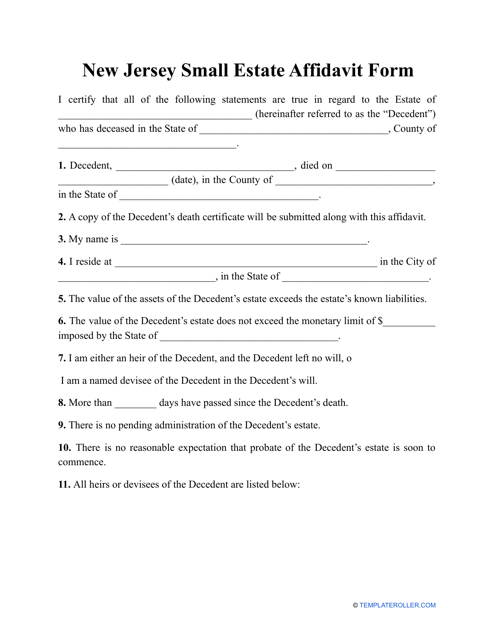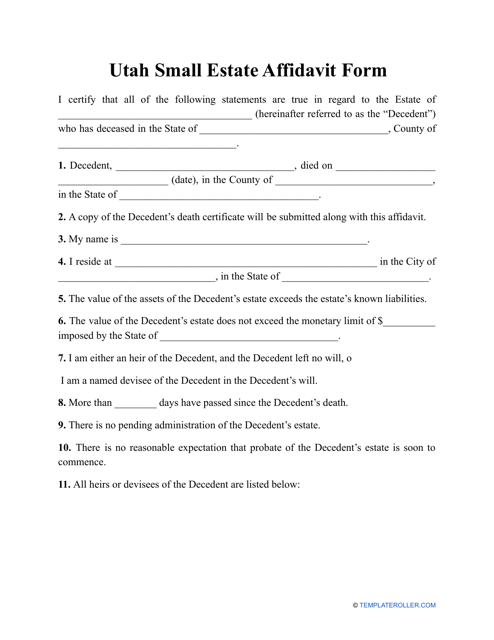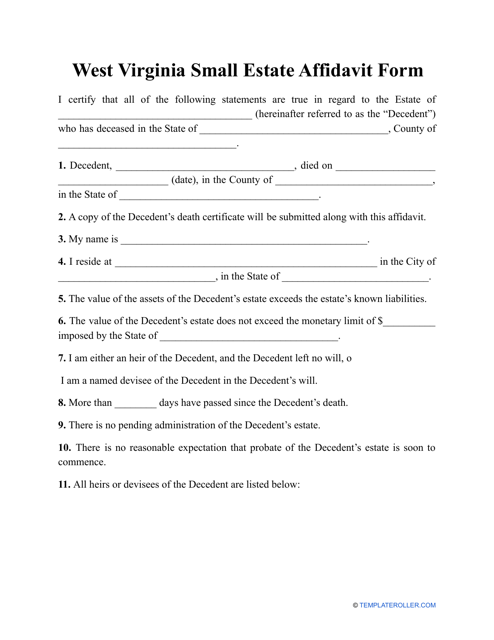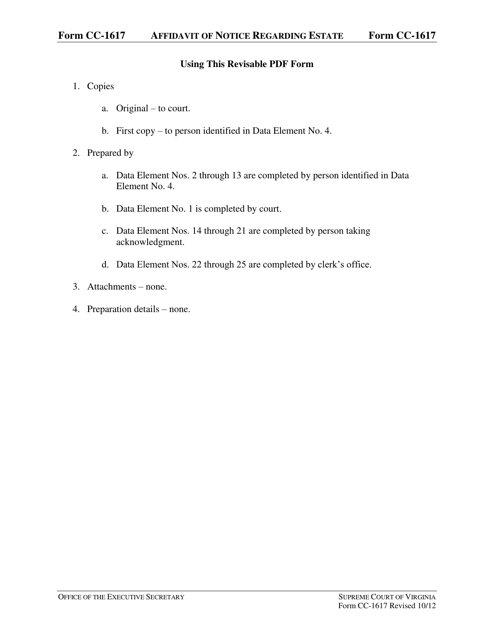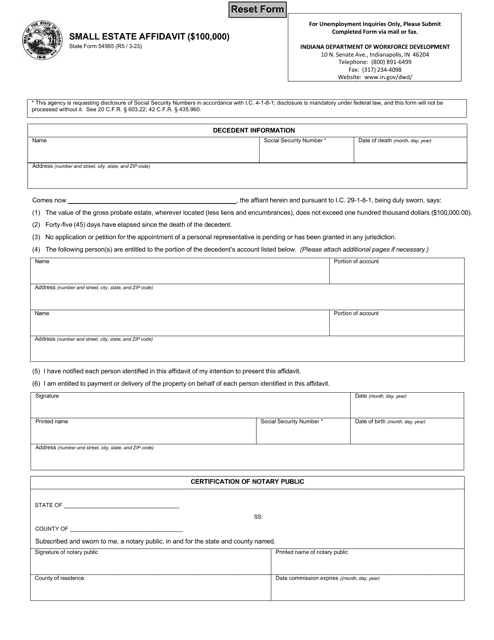Estate Affidavit Templates
An Estate Affidavit, also known as an Estate Affidavit Form, is a legal document that provides a simplified and expedited process for settling the estate of a deceased individual with assets valued below a certain threshold. This alternative to probate allows for the efficient transfer of assets to the rightful beneficiaries without the need for a lengthy court process.
The Estate Affidavit serves as a declaration that the assets of the deceased person can be distributed without the need for probate. It outlines the deceased individual's assets, liabilities, and beneficiaries. By completing and submitting the Estate Affidavit, the rightful heirs can claim the assets, settle outstanding debts, and resolve any legal matters related to the estate.
The Estate Affidavit is applicable in various states, including Alaska, Alabama, Utah, West Virginia, and Indiana. Each state may have different requirements and thresholds for using the Small Estate Affidavit. Hence, it is crucial to consult the specific state laws or seek legal advice to ensure compliance with the applicable rules and regulations.
With an Estate Affidavit, the heirs can save time, money, and avoid the complexities associated with traditional probate proceedings. However, it is important to note that this document is only suitable for estates with assets valued below a certain threshold, typically ranging from $100,000 to $150,000 depending on the state.
By utilizing the Estate Affidavit or the Small Estate Affidavit Form, individuals can protect the rights and interests of the deceased person's beneficiaries while streamlining the estate settlement process. This document allows for a more efficient and expedited transfer of assets, ensuring that the rightful beneficiaries receive their inheritance in a timely manner.
Documents:
15
This type of form is used in Illinois and refers to a formal document that gives legal heirs of the deceased individual the right to distribute the latter's assets without having to appear in court.
This Form is used for reporting unclaimed property in the estate of a deceased person in Florida.
This is a legally binding document used in Minnesota to settle a small estate in the absence of a will.
Form 700-00402 Affidavit of Paid & Outstanding Funeral Expenses and Debts for Small Estate - Vermont
This Form is used for declaring a small estate in Illinois and is typically used when the deceased had minimal assets or property.
After this type of form has been completed, it gives an individual legal permission to claim an inherited small estate in the state of Nevada.
This template is used in Alabama and is a written statement drafted by the major heir of a deceased person with the intention to get access to the latter's assets promptly without probate.
This is a legal instrument used in Mississippi by the heir or beneficiary of a deceased individual to speed up the small estate settlement.
This type of template legally allows an individual to collect a property that they have legally inherited from a decedent in the state of New Jersey.
This Form is used for filing a small estate affidavit in Utah. It is a document that allows the transfer of a deceased person's assets without going through probate.
This is a legally binding document used in West Virginia to settle a small estate in the absence of a will.
This Form is used for submitting an Affidavit of Notice regarding an estate in Virginia. It provides instructions on how to properly complete and file the form.
The heir of a small estate in Indiana may use this form to take advantage of the opportunity to access the assets and funds of the deceased owner quickly.

